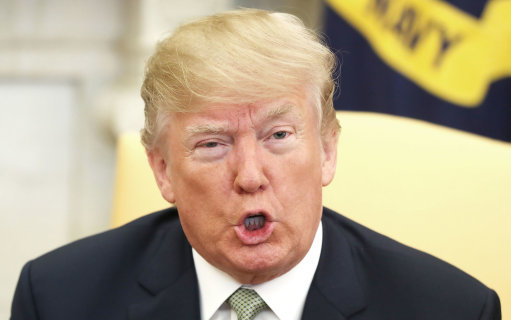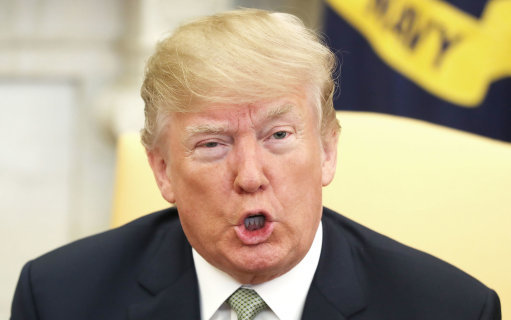In interviews over the weekend Shadow Chancellor John McDonnell reiterated that Labour wants a general election to resolve the Brexit impasse. Would it? Could it?
Since the introduction of the Fixed-term Parliaments Act in 2011, calling an early general election has gotten a whole lot more complicated. I’ve tried to summarise the process in a little flow-chart pasted below this piece.
There are two routes to an early election under the Act.
The simple “early election” route
One has already been used—the simple “early election” route. This requires a motion to be passed in the House of Commons by two-thirds of all MPs (not just those present on the day). The wording specified in the Act is “That there shall be an early parliamentary general election.”
Theresa May used this route last year to call an early election and it easily reached the “two-thirds” vote because Labour and other opposition parties felt obliged to vote for it.
This showed that, in most circumstances, if the prime minister decides to go for an early election they can almost certainly get it through parliament—it’s hard to think of many circumstances where it would be blocked. It’s possible, but opposition parties would, in practice, be under immense political pressure to support it.
However, this isn’t symmetrical. If an opposition party put down the motion it is hard to see how it would get two-thirds of all MPs to vote for it. If Labour did it now it would need every opposition MP plus around 110 Tory or DUP MPs to back the motion to get it through. The chances of that happening are vanishingly small.
It is worth remembering this if there are murmurings from the Tory Brexiteers about siding with Labour to force an early election—given there’s only about 60 MPs in the European Research Group. In any case an election forced through with a split like that in the ranks would be suicidal for the Conservative Party.
The “confidence” route
The second route to an early election under the FTPA is through a motion of “no confidence.” The wording has to be “That this House has no confidence in Her Majesty's Government.” This does not prevent other forms of confidence motion or censure, but anything else has zero legal import for calling an early election or not.
A “no confidence” motion requires only a simple majority of MPs present and voting to pass and triggers a process that could lead to an early election but doesn’t necessarily do so.
The Act provides for a 14-day period in which a motion “That this House has confidence in Her Majesty's Government” can be passed which would end the process and no election would be called.
The tricky question here is who would be “Her Majesty’s government” in these circumstances?
If, for example, Tory ERG or the Tory “Remainer” rebels (it would only take a dozen or so) sided with Labour and the rest of the opposition parties to pass a simple “no confidence” motion, what would happen next? Theresa May would have 14 days to try to restore order. She could change policies, or people, or both and win back the rebels to pass a “confidence” motion.
She could resign as Tory leader and let someone else take over (a Brexiteer maybe). But that would create other problems. Firstly it would have to short-circuit normal Tory leadership election rules (they only have 14 days). Secondly, if, for example, Boris Johnson became PM then it’s quite likely Tory “Remain” MPs would refuse to support a motion of confidence and an election would be triggered anyway.
What is clear is that it would be virtually impossible for Jeremy Corbyn to cobble together a coalition in these circumstances that could “command a majority” in the commons, to then get called to the Palace, made PM and have an affirmative resolution in his government passed.
Would an election solve anything anyway?
So there is a faint possibility we could end up having an early general election, but it seems unlikely. But what would it resolve anyway?
At the moment the two main parties are committed to leaving the European Union, to leaving the single market and they have a small difference over the customs union. They both want some form of “out but opted in,” which is likely to be unacceptable to the EU.
It is possible that in the scenario where May opts for a “no deal” Brexit herself, or is replaced by someone who wants that, a GE could be triggered in which the issue was clearer: no deal from the Tories or some sort of soft Brexit deal from Labour.
But single-issue triggered general elections rarely end up being solely about that issue. The clue is in the name—“general” election. May found that out to her cost last year when she tried to fight one. The voters often have other ideas. As is well documented, even referenda on a single issue are rarely decided simply on that issue. Voters cast their votes for a variety of reasons, often unrelated to the issue at stake.
So the chances of a 2018 general election seem to me to be small and the chances it would do anything to resolve the issue of Brexit even smaller. But who knows—strange things are happening in UK politics and they could get a whole lot stranger.
Note: As a reminder, there is another little flow-chart of how the Tory leadership “challenge” process is supposed to work. In the event of May losing a confidence vote in the Commons (as opposed to amongst Tory MPs) it’s doubtful things would happen like this.














